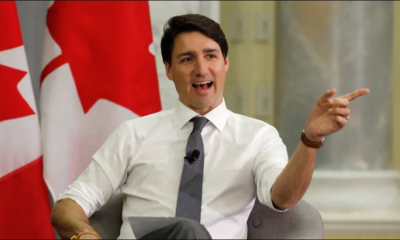World
Obama, National Security Council assess strategies on IS

Washington: US President Barack Obama met his National Security Council to discuss strategies for the fight against the Islamic State (IS) terrorist outfit in Iraq and Syria, a news agency reported.
The meeting follows what the White House has termed a “setback” which led to the jihadis taking control of the Iraqi city of Ramadi in Al Anbar province.
“The president met with his National Security Council to discuss the situation in Iraq and our strategy to address the threat of IS in Iraq and Syria,” the White House said in a statement on Tuesday.
Obama received information “about the latest developments in Iraq and support to Iraqi security forces and tribal fighters that respond to the situation in the province of Al Anbar”.
He also applauded the Iraqi Council of Ministers’ decision “to accelerate the training and equipping of local tribes in co-ordination with authorities in Al Anbar, increase Iraqi army recruitment and train the local police,” said the White House.
The Iraqi government will also “develop a consolidated plan to retake Ramadi with all grouped strengths acting under Iraqi command”, the statement added.
Obama “re-affirmed the strong US support” to the government of Iraq and its people in the fight against IS.
The occupation of Ramadi, just 100 km west of Baghdad, is a blow to the Iraqi government.
Its fall strengthens the jihadis’ hold in Al Anbar, after their recent military setback in Tikrit.
White House spokesperson Josh Earnest on Tuesday acknowledged the loss of Ramadi as a “setback”, but stressed the need to maintain perspective.
“We have had other periods of setbacks that have been shortly followed by important advances,” Earnest told media.
The meeting with Obama was attended by US Vice President Joe Biden, Secretary of Defence Ashton Carter, Secretary of State John Kerry (via tele-conference), CIA Director John Brennan, Director of National Intelligence James Clapper, and Secretary of Homeland Security Jeh Johnson among others.
World
Lockdowns in China Force Urban Communities to Defy Censorship and Vent Frustration Online

Shanghai’s rich middle class is leading a wave of online dissent over the strict and prolonged lockdowns imposed in various parts of the country. Chinese internet censorship is struggling as patience is wearing thin in many urban centers, coming up with creative forms of online protests.
Social Media Posts Revealing Lockdown Tension in Shanghai
Drawn-out lockdowns are nothing new in China as authorities insist with the nation’s zero-Covid policy since the start of the pandemic. Currently over This time around, however, metropolitan areas like Shanghai are increasingly difficult to keep quiet, given that its more than 25 million residents have seen weeks of total isolation along with food shortages and many other service interruptions.
Dozens of towns and reportedly over 300 million Chinese citizens have been affected by lockdowns of different severity. As expected, urban netizens have been most outspoken over their difficulties by finding creative ways to get around state censorship and bans placed on topics, news comments and spontaneous campaigns.
Shanghai residents have been using mobile proxies and hijacking seemingly unrelated hashtags to talk about healthcare issues, delivery failures and the overall severity of their situation. The “positive energy” that the Chinese government wants to transmit during the recent prolonged series of lockdowns does not come naturally to those counting food supplies and online censors are working hard to filter words, trending topics and undesired social media sharing.
WeChat groups and message threads are under constant monitoring. Posts questioning the zero-Covid approach have been quickly deleted, including by leading Chinese health experts like Dr. Zhong Nanshan. Video footage is soon censored and protests and investigations are quickly made to disappear.
Where this has not worked, officials have exposed banners with warnings and outright threats like “watch your own mouth or face punishment”, while drones have been patrolling the city skies. Yet, if anything, this has led to further tensions and unspoken confrontation with Shanghai’s educated and affluent middle class.
Creative Online Solutions Harnessing Civic Energy
Announcements by Chinese social media that they would be publishing the IP addresses of users who “spread rumors” have not helped either. Tech industry research has shown that much of Asia’s tech-savvy population has a habit of using mobile proxies and other privacy tools, quickly finding workarounds to browse the internet freely and talk to the world about the hottest topics.
The sheer volume of forbidden posts is already a challenge for the very censorship system, experts explain. Unable to track all trending hashtags, state workers overlook topics that speak about the US, Ukraine or other popular news. Linking human rights elsewhere to their situation, Chinese online dissidents establish their informal channels and “hijack” the conversation to share personal or publicly relevant information about the Covid suppression in their town.
Sarcastic and satirical posts still dominate. Others hope to evade the censors by replacing words from famous poems or the national anthem. One thing is certain – social media, when harnessed with the right creativity, has proven its ability to mount pressure on the government in even some of the most strictly controlled tech environments like China.























